Buses: Does falling use mean they are only for big cities?
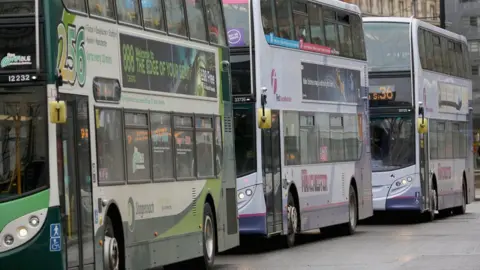 Getty Images
Getty ImagesThe number of bus journeys taken across Great Britain is falling, with about 90 million fewer in 2017-18 than the year before.
With government funding being cut to councils, what is next for the bus services some view as "essential"?
We invited readers to ask their questions about Britain's buses. Here's what we found:
Can buses only make a profit in big cities?
Buses make money if people use them. If the bus operators cannot turn a profit, councils can subsidise them so they can still run without making a loss.
That means operators in big cities, with bigger populations and plenty of commuters, will find it easier to cover costs and make a profit.
Prof John Bryson, of the University of Birmingham Business School, said bus companies operating in rural areas have the difficult task of balancing "limited demand" with keeping places connected.
For years there have been more bus journeys made in London than the whole of the rest of England.
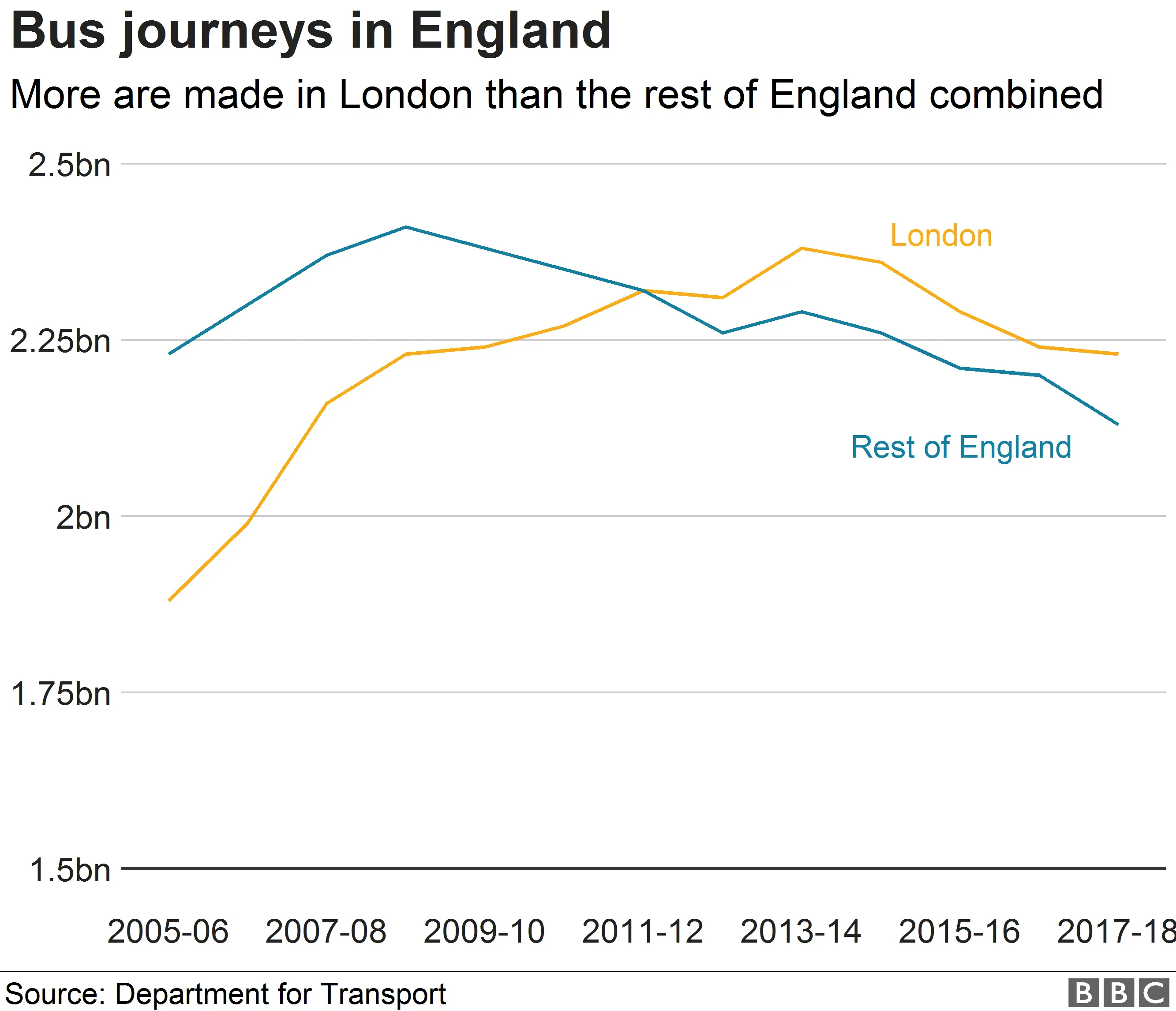
However, Darren Shirley, chief executive of the Campaign for Better Transport, said councils should still consider bus services an investment, because it can save them money elsewhere.
"Buses help people get into work and training and enable them to spend money on our high streets," he said.
"That's before the traffic-busting and environmental benefits of people using the bus rather than the car."
Greg Marsden, professor of transport governance at the University of Leeds Institute for Transport Studies, said Britain should look to Europe for answers.
He said authorities on the continent tended to see buses as a "social good which can work through the market".
This issue, according to Prof Bryson, is part of wider debates on how society should subsidise people in remote areas.
Does a fall in bus journeys impact on the environment?
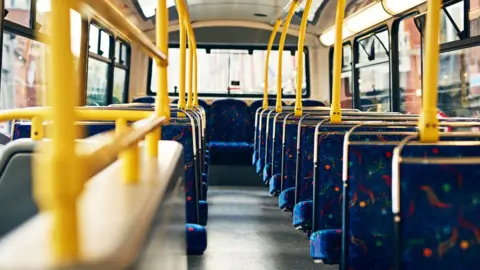 Getty Images
Getty ImagesBuses are responsible for 1% of all greenhouse gas emissions in the UK, according to the independent Committee on Climate Change.
That compares with 15% from cars, 4% from lorries and 4% from vans.
Prof Marsden said a fall in the number of bus journeys would not help the environment.
"Running empty buses is not carbon efficient," he said.
"The carbon and congestion costs of removing buses and having people transfer to private cars or taxis is significantly worse."
The Campaign for Better Transport said a fully loaded double decker bus was equivalent to taking 75 cars off the road.
Whether that is better or worse for the environment depends on how the vehicle that comes off the road was powered.
"If (the car was) electric and sustainable, it's bad, but if it was diesel, it's good," Prof Bryson said.
Why are bus services so expensive to run?
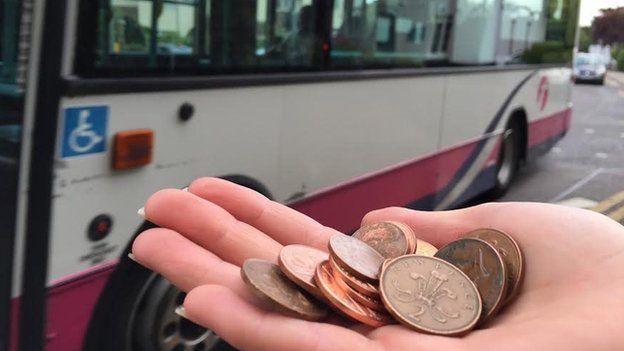
The latest figures published by the Department for Transport (DfT) show bus fares across Great Britain have risen by 21% in real terms since 2008.
That means inflation alone is not to blame.
Bus operators say increased congestion, rising costs of staff, vehicles maintenance and fuel have all played their part.
Stagecoach is putting up fares in Sheffield from Sunday, with single and return fares going up 10p and 20p respectively.
First Manchester put fares up at the beginning of January, with single tickets priced £3.40 rising 10p and those priced £4.20 rising to £4.40.
It said: "These changes are essential to allow us to continue to operate the highest level of service possible for our customers. We have worked hard to keep any increases to a minimum."
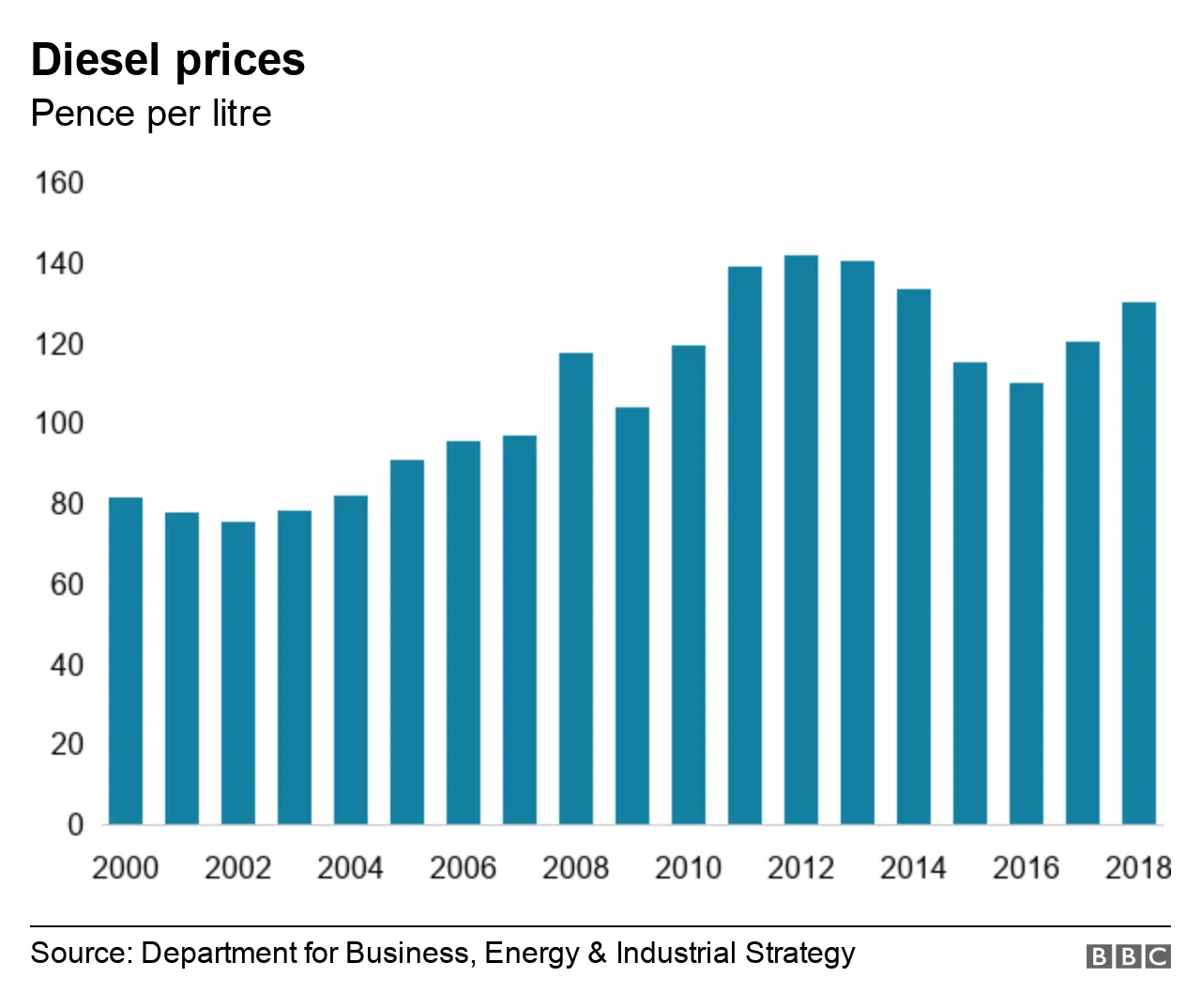
What about providing free buses?
In September 2018 the French city of Dunkirk unveiled a free service for its 200,000 residents.
This followed similar moves in Tallinn, the Estonian capital in January 2013.
In England, free bus travel is available for the over 65s, but they can use it all over the country.
Younger people's discounts have increased use.
In Merseyside and Halton, under 18s can travel all day via any bus company using a £2.20 ticket.
This, according to the Campaign for Better Transport has seen a 142% increase in young people's bus journeys.
However, Prof Marsden said more money was needed before free buses could become a reality.
He said just because pensioners were entitled to free bus travel, many of them could not use it because services had been withdrawn.
If more money is not made available to run the services in the first place, the same would happen to any younger passengers who get the same entitlement.
"Without a bigger pot of money, we will just redistribute the pain."
